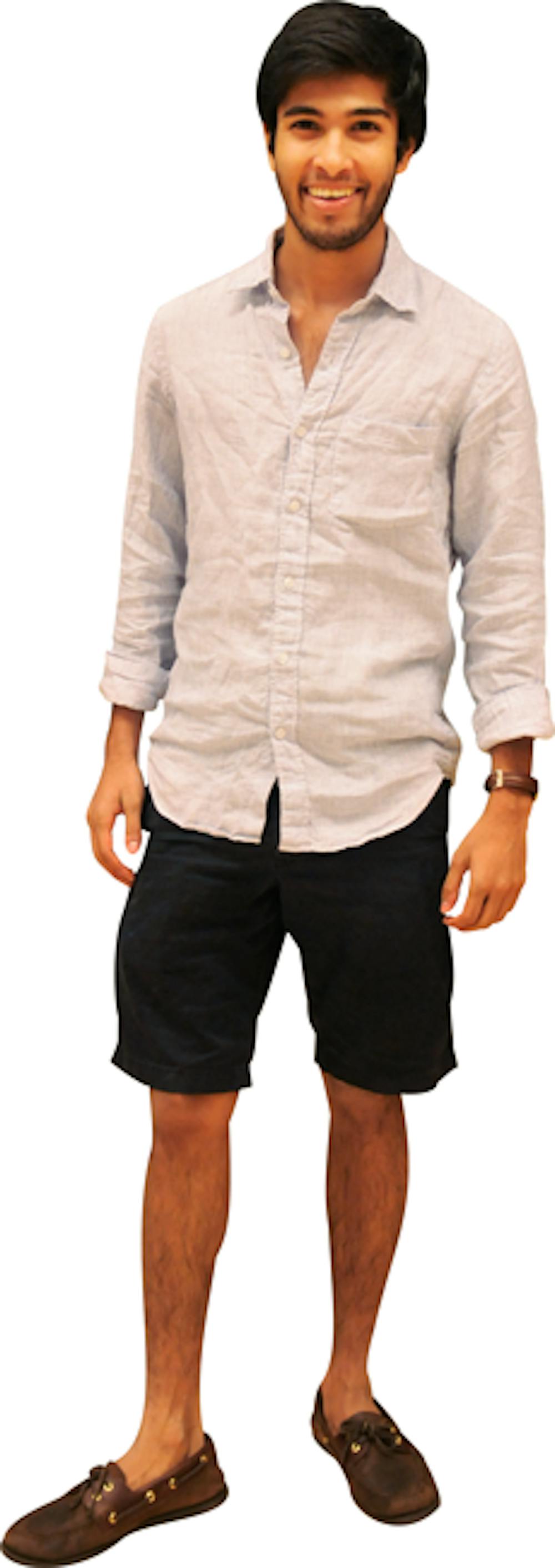Street: Tell us about Dhamaka. Tanvir Gopal: Dhamaka is an all–male dance troupe that fuses South Asian and Western styles, so we’re kind of a…niche organization. I’ve pretty much choreographed a piece every year that I’ve been a member.
Street: But can girls join? Maybe? Please? TG: One year, we actually had two girls with fake mustaches come into our auditions. It’s worth a try.
Street: What’s the best thing about Dhamaka? TG: Dhamaka has been a fun and creatively expressive way for me to connect with my Indian roots. But the friendships I've made with other guys on the team have been the best part. We all get along really well and share a common passion for performing.
Street: Is there any sort of rivalry between Dhamaka and Penn Masala? TG: All I can say is that Dhamakapella is in the works…just kidding. We’re all friends, no rivalry at all.
Street: What is your guilty pleasure? TG: Coke floats from Capogiro. It’s not on the menu, but they use gelato instead of ice cream, and they are delicious. I think I’ve had one everyday this week. Don’t judge.
Street: On a scale from 1 to 10, how would you rate the dance number at the end of "Slumdog Millionaire"? TG: Jai Ho definitely gets a 10. I thought the song and the meaning fit perfectly with the ending of the movie. But the Pussycat Dolls remix unfortunately gets a 1. They totally butchered it.
Street: How do you come up with choreography? TG: It really depends on the piece and the style of dance. I draw inspiration from all sorts of things including movies, eras, sounds and books. Bollywood and hip–hop are usually the styles that are easiest and most enjoyable for me. I also love choreographing with fellow Dhamakers because everyone on the team brings something new and interesting to the table as a choreographer.
Street: Who’s your idol? TG: Lately, PSY from “Gangnam Style.” I want to learn that dance so badly. I’m so bitter that I wasn’t aware of the flash mob on campus this past weekend.
Street: Tell us about your stint on Broadway. TG: When I was 13, I originated the role of Munna, the slum boy in A.R. Rahman’s "Bombay Dreams," produced by Andrew Lloyd Webber. Before that, I sang at the Metropolitan Opera and someone I knew there recommended me to audition for the role on Broadway. I acted, sang and danced four shows a week for the entire nine–month run. It was so awesome not only to perform on Broadway, but also to be involved in a project that really paved the way for South Asian actors living in the U.S.
Street: There are two types of people at Penn… TG: Those who go to Pottruck to work out and those who go to Pottruck just for the smoothies. I belong to the latter group.

